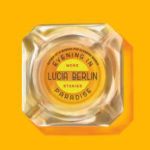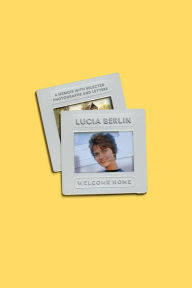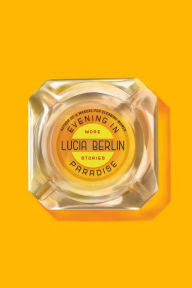
If poets, as Shelley once said, are the unacknowledged legislators of the world, fiction writers have become the world’s unwitting ambassadors. Have you published a novel or a short story collection? You can be expected to be a spokesperson for the place in which it is set. Or for the ethnic or gender identity of its characters. Or for the religious, ethical, or social norms it addresses. The PR apparatus around a book pushes consumers to read through this lens (“a piercing vision of life in Cuba during its transition to Communism,” or some such). So do the de rigueur essays that writers are now encouraged to whip up for publication around their books’ releases (“What Growing Up in Kentucky Taught Me About Fiction — and Guns,” and so on).
What to do, then, with Lucia Berlin? More than a decade after her death in 2004, Berlin’s work at last took flight with the 2015 publication of A Manual for Cleaning Women, a collection of stories that were barely appreciated when they first appeared, mostly published in little magazines or by small presses. Her snapshots of hard living — Berlin wrote about maids, hospital workers, and alcoholics, having been all three — were piercing and plainspoken in ways that the “dirty realists” of the 80s often weren’t, or weren’t convincingly. So the surrounding narrative about Berlin — the things she would be an ambassador for, had she been alive to perform the requisite duties — was that she was a working-class writer. Or a writer of addiction. And/or a female writer unjustly elbowed out of publishing’s preferred narratives.
 That’s all true, but true in ways that miss the point about her work. Two new books, brought to market thanks to the success of Cleaning Women, bolster her literary status while complicating her narrative. Evening in Paradise collects 22 additional short stories, and Welcome Home assembles a set of previously unpublished autobiographical sketches about her peripatetic life, plus a set of assorted letters. Both books reveal a titanic anxiety about her standing that makes it hard to turn her into a type. Her characters crave domesticity but also chafe at it. She wrote about motherhood but seemed to find no particular fascination in it as a subject. She wrote often about place — she’s especially expressive about New Mexico — but didn’t settle long enough in one place to fully claim one perch in particular. Ultimately, she was a writer about disconnection of multiple sorts — an ambassador without an embassy.
That’s all true, but true in ways that miss the point about her work. Two new books, brought to market thanks to the success of Cleaning Women, bolster her literary status while complicating her narrative. Evening in Paradise collects 22 additional short stories, and Welcome Home assembles a set of previously unpublished autobiographical sketches about her peripatetic life, plus a set of assorted letters. Both books reveal a titanic anxiety about her standing that makes it hard to turn her into a type. Her characters crave domesticity but also chafe at it. She wrote about motherhood but seemed to find no particular fascination in it as a subject. She wrote often about place — she’s especially expressive about New Mexico — but didn’t settle long enough in one place to fully claim one perch in particular. Ultimately, she was a writer about disconnection of multiple sorts — an ambassador without an embassy.
The anguish produced by such statelessness emerges most strikingly in the story “Cherry Blossom Time,” in which a young mother is weary of the mundane routines around her: the rhythm of the postman on his rounds, the child’s expectations for mealtimes and naps, the way her husband corrects her when she says “postman.” The story ends with a cri de coeur after she tries to bust out of the rut when her husband comes home:
“On the way home I murdered the postman.”
“Mailman,” David said, taking off his tie.
“David. Please talk to me.”
 Disruption, however, is no place to live either. In “The Adobe House With a Tin Roof,” a woman, Maya, tries to build a new home outside Albuquerque with her jazz-musician husband and two children. But plumbing contractors are slow, musicians’ hours are odd, neighbors are noisy and difficult, and even attempts at basic household hygiene are thwarted. Putting down poison to kill mice leaves scads of them “staggering around the kitchen, like drunken windup toys,” prompting a neighbor’s lecture about the poison endangering the lives around her. Life sometimes means accommodating vermin. But rather than play this as a housewife-in-crisis tale, Berlin emphasizes the anxiety of the disconnection between the recklessness of the landscape and the foolhardy attempts to contain it. The scenes she set are uniformly gorgeous: “It was wonderful, the sound of the rain on the tin roof, the lightning and thunder … The house with the blazing red trumpet vine, the house with roses, everywhere.” But humanity and the landscape won’t cooperate except comically; the woman’s water pump gets started only once a man pours beer down a well.
Disruption, however, is no place to live either. In “The Adobe House With a Tin Roof,” a woman, Maya, tries to build a new home outside Albuquerque with her jazz-musician husband and two children. But plumbing contractors are slow, musicians’ hours are odd, neighbors are noisy and difficult, and even attempts at basic household hygiene are thwarted. Putting down poison to kill mice leaves scads of them “staggering around the kitchen, like drunken windup toys,” prompting a neighbor’s lecture about the poison endangering the lives around her. Life sometimes means accommodating vermin. But rather than play this as a housewife-in-crisis tale, Berlin emphasizes the anxiety of the disconnection between the recklessness of the landscape and the foolhardy attempts to contain it. The scenes she set are uniformly gorgeous: “It was wonderful, the sound of the rain on the tin roof, the lightning and thunder … The house with the blazing red trumpet vine, the house with roses, everywhere.” But humanity and the landscape won’t cooperate except comically; the woman’s water pump gets started only once a man pours beer down a well.
Maya appears again in “La Barca de la Ilusión,” living in the coastal town of Yelapa, Mexico, with Buzz, another musician and a recovering heroin addict. “Heroin was the focus of every day, all day, for both of them. The move to Yelapa was their only chance.” The distance between home and house arrest never is never very far for Berlin; staying in one place seems to suggest having done something wrong, or to have been jailed by one’s own bad habits. After a confrontation with a former dealer goes awry, Maya decries her fate: “I want to go back to the real world.” But no such place exists.
 Berlin’s stories and the sketches that make up Welcome Homeread like palimpsests of each other — the distance between her reality and fiction wasn’t far either. She did live with a musician, her husband Buddy, in Yelapa, where addiction and dealers always hovered. “As if addiction had sent out loud heartbeat messages, the drug dealers began to show up,” she writes. “Tino or Victor, Alejandro. All young, handsome ex-beach boys, smart and mean. Whispers in our garden, laughter in the dark by the datura tree.”
Berlin’s stories and the sketches that make up Welcome Homeread like palimpsests of each other — the distance between her reality and fiction wasn’t far either. She did live with a musician, her husband Buddy, in Yelapa, where addiction and dealers always hovered. “As if addiction had sent out loud heartbeat messages, the drug dealers began to show up,” she writes. “Tino or Victor, Alejandro. All young, handsome ex-beach boys, smart and mean. Whispers in our garden, laughter in the dark by the datura tree.”
Much of Welcome Home is marked by similar observations of chaos, striking in their lyricism but too sincere and earnest to be ironic, a brand of ruin porn. She lived on the cheap and moved often — the book includes sketches of Alaska, Idaho (where her favorite childhood toy was “a percolator tied to a bathroom belt”), Kentucky, Montana, Texas, Arizona, Chile, New Mexico, Greenwich Village, and Mexico. But she writes little about poverty as such; she’s more enthused by the scrum of top-tier musicians, artists, and poets who appeared in her life and camped in her living rooms. Art — that was the thing. Sewing children’s ponchos out of scrap fabric gives her a kind of low-grade thrill that she seems constantly to be striving for, even if it hardly kept the lights on.
Although her passion for art was palpable, there’s nothing in the memoir portion of Welcome Home about her aspirations to become a writer, even if this was very much on her mind in the early and mid-60s. In 1960, she writes her friend Ed Dorn in a panic over signing an option with Little, Brown for her first novel — “Oh, can you possibly see how marvelous and terrifying this is for me?” A writing career would bring order, but for Berlin, order was always something of a threat. Welcome Home includes a list of quick assessments of places she lived up through the late 80s. It’s largely a catalogue of catastrophe (“Flood, dysentery”; “Roof fell in. Evicted.”), beginning portentously in Alaska: “Avalanche the day I was born, wiped out a third of town.” It ends in Oakland, California, hopeful but aware that the other shoe could always drop. “No catastrophe. So far,” she wrote. For Berlin, that was progress.
[Published by Farrar, Straus & Giroux, November 6, 2018. Evening In Paradise, 256 pages, $26.00 hardcover. Welcome Home, 160 pages, $24.00 hardcover]